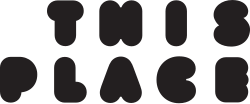This article has multiple issues. Please help improve it or discuss these issues on the talk page . (Learn how and when to remove these messages)
|
 | |
| Company type | Subsidiary |
|---|---|
| Industry | User Experience |
| Founded | 2013 London, United Kingdom |
| Founders |
|
Area served | Worldwide |
Number of employees | 30+ |
| Parent | Asteria Corporation (formerly Infoteria Corporation) |
| Website | www |
This Place are a digital strategy and design agency, designing sustainable digital businesses that work for customers, for shareholders and for society. Driven by purpose as much as profit, they design websites, apps and digital services used by millions of people. Working with clients across the globe from a London hub, they are part agency, part consultancy and true partner
Contents
This Place was set up by Dusan Hamlin, Ben Aldred and Chloe Kirton in 2013 based on the premise that user experience and design would be increasingly important for businesses to succeed in the future.